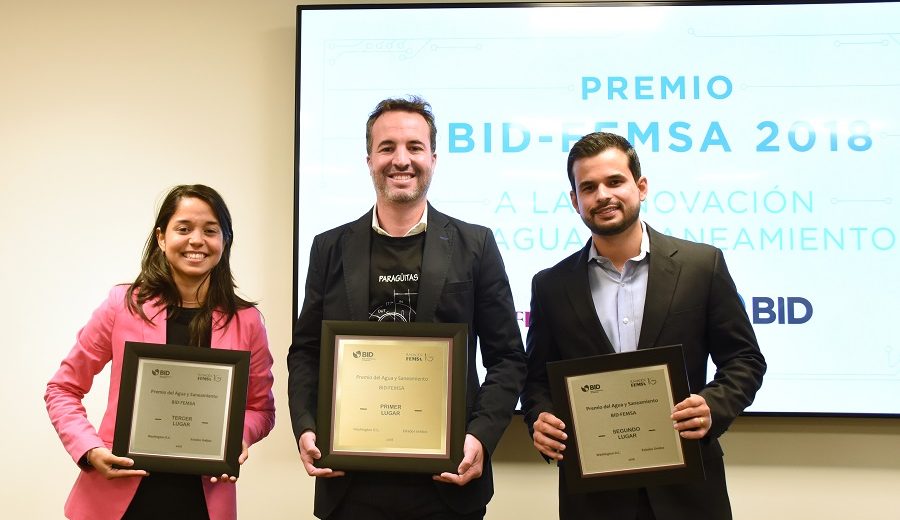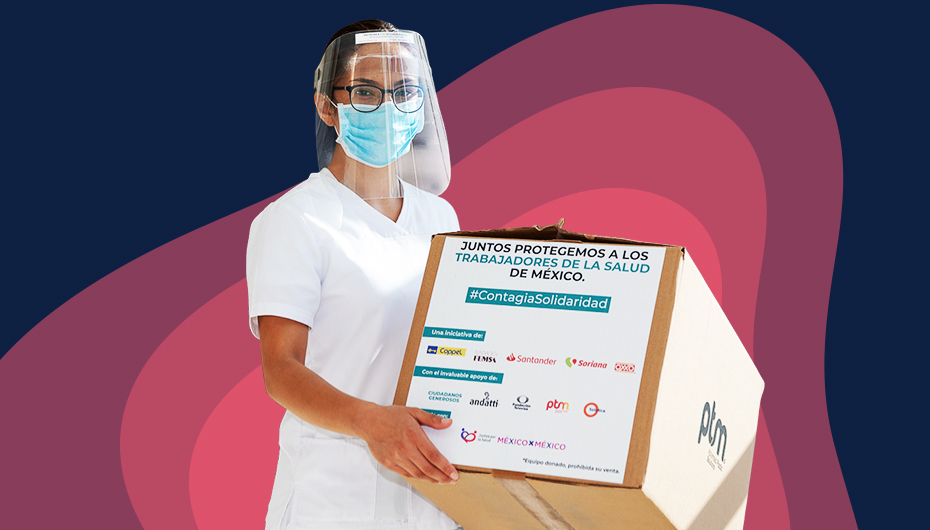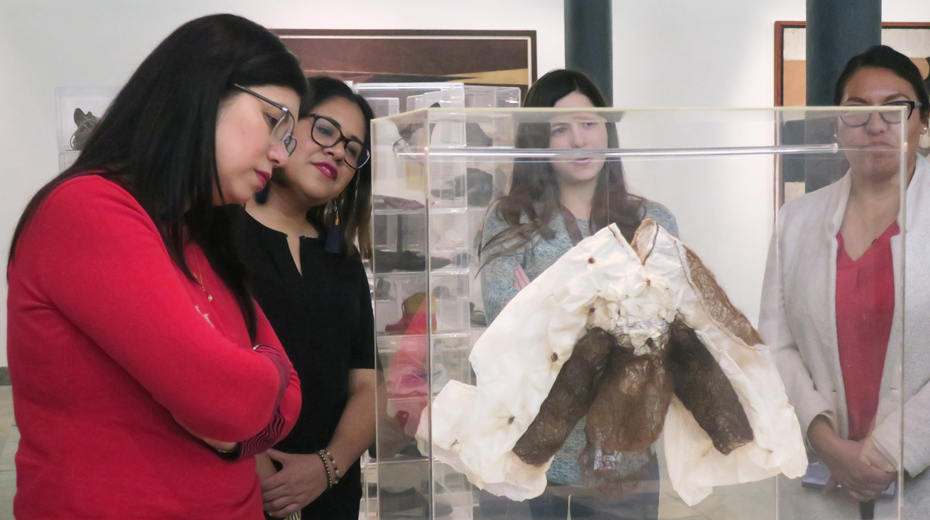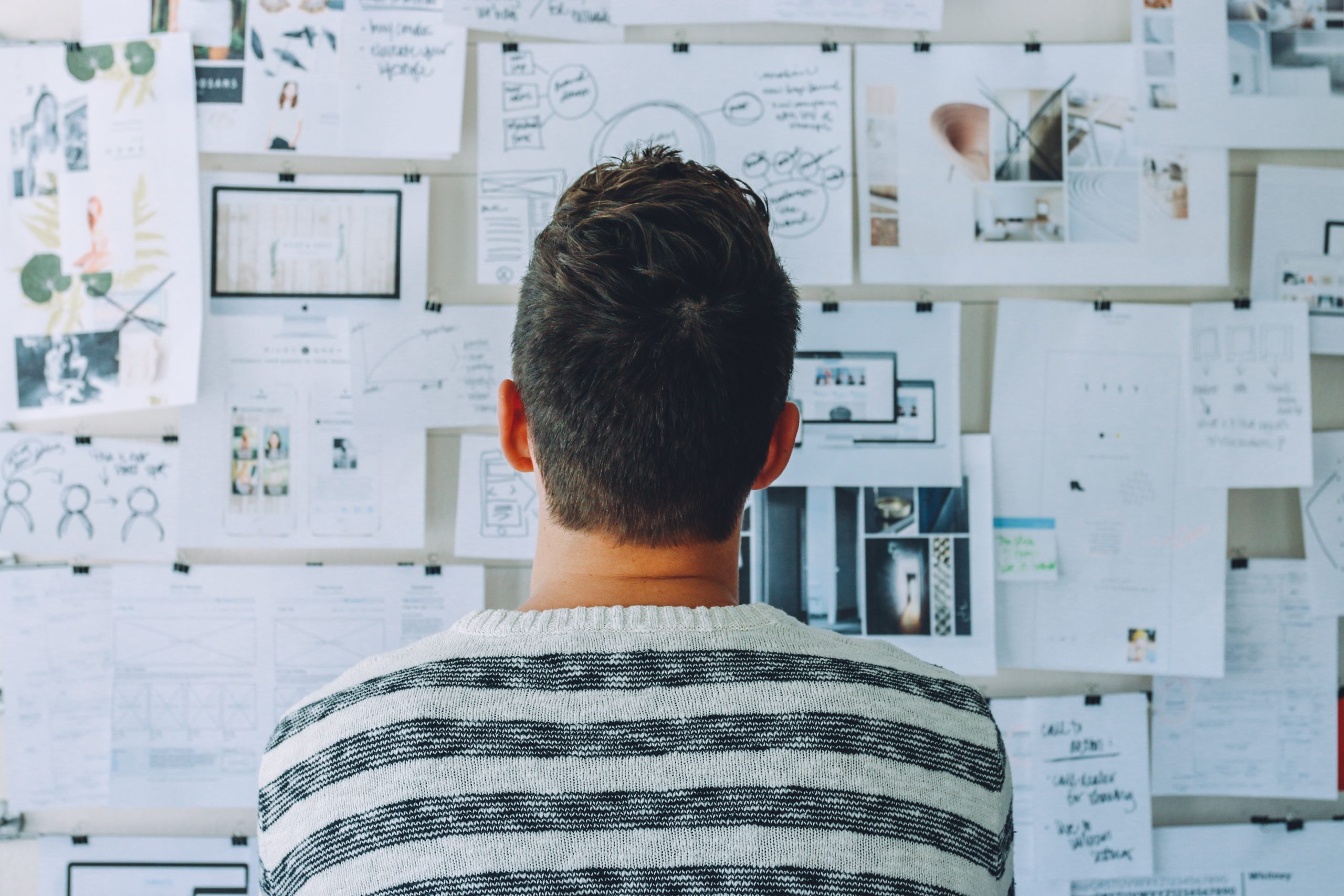Last December 7, we met in Washington, D.C. to recognize the three winners of this edition of the IDB-FEMSA 2018 Award, and we found out what they had to say about their projects, their triumphs and their plans for the future. Join us!
What technology did you present?
José Matas (winner of the first place and favorite of the public): I presented the Ion AG technology; which are rainwater collectors for rural communities where there is no access to water. With the use of our device, a nanotechnology development, we buried the silver and ceramic, and purified the water with this process.
Felipe Cardoso (winner of the second place): Our innovation is a sustainable solution for dry recycling of plastic without the use of water and no waste generation, providing environmental, social and economic benefits.
Jenifer Colpas (winner of third place): Our technology is called “Baño Grato”; a decentralized sanitation solution that does not use water.
Why did you decide to innovate with this technology?
José Matas: We had to provide an economic solution that could begin to solve that problem because we have not solved it yet. It is a very satisfying feeling every time you go to the communities and install this device in each house. It makes you feel better.
Felipe Cardoso: We believe that one of the ways to reduce the environmental impact of plastic wrap and packaging in water is with more recycling, and with less use of water in this process.
Jenifer Colpas: We noticed that many rural communities did not have restrooms. Therefore, we decided to connect low-cost sanitation solutions to take them to these communities and increase their quality of life.
How will you use this award for a better future?
José Matas: We are making an aerobic bio digester that does not need electricity. We have obtained some resources for this research and we are going to use them directly in that, because it is the next project and it is clear for us where we’re going to.
Felipe Cardoso: We will use it to buy more packages so that we can recycle them and eliminate more plastic packages from the market, making our plastic valorization process and generating more social and environmental impact benefits.
Jenifer Colpas: We plan to invest it in two lines. The first one is to improve the designs and close the sanitation cycle and that is to include a shower inside the restroom. In addition, be able to use the products that are generated from the restroom (as manure and fertilizer) to be able to market it. And the second one is to also design a bathroom that can be sold to a second client segment that are rural clients; people who have country houses or farms where they can go to buy that bathroom and in this way we can finance the bathroom of the communities.
Anything else you wish to share with us?
José Matas: Something I’ve always wanted to say: thank you.
Felipe Cardoso: I would like to thank the IDB and the FEMSA Foundation for the opportunity to be here in Washington competing with so many projects, for having been among the six finalists (it was something incredible) and for having been second place in the awards. These three days that we spent here were very interesting. Everything was very enriching. I just want to say thank you.
Jenifer Colpas: Thank you very much for making this kind of awards a reality. It is quite motivational for social entrepreneurs who are in the initial stages to receive the endorsement of the IDB and the FEMSA Foundation.






